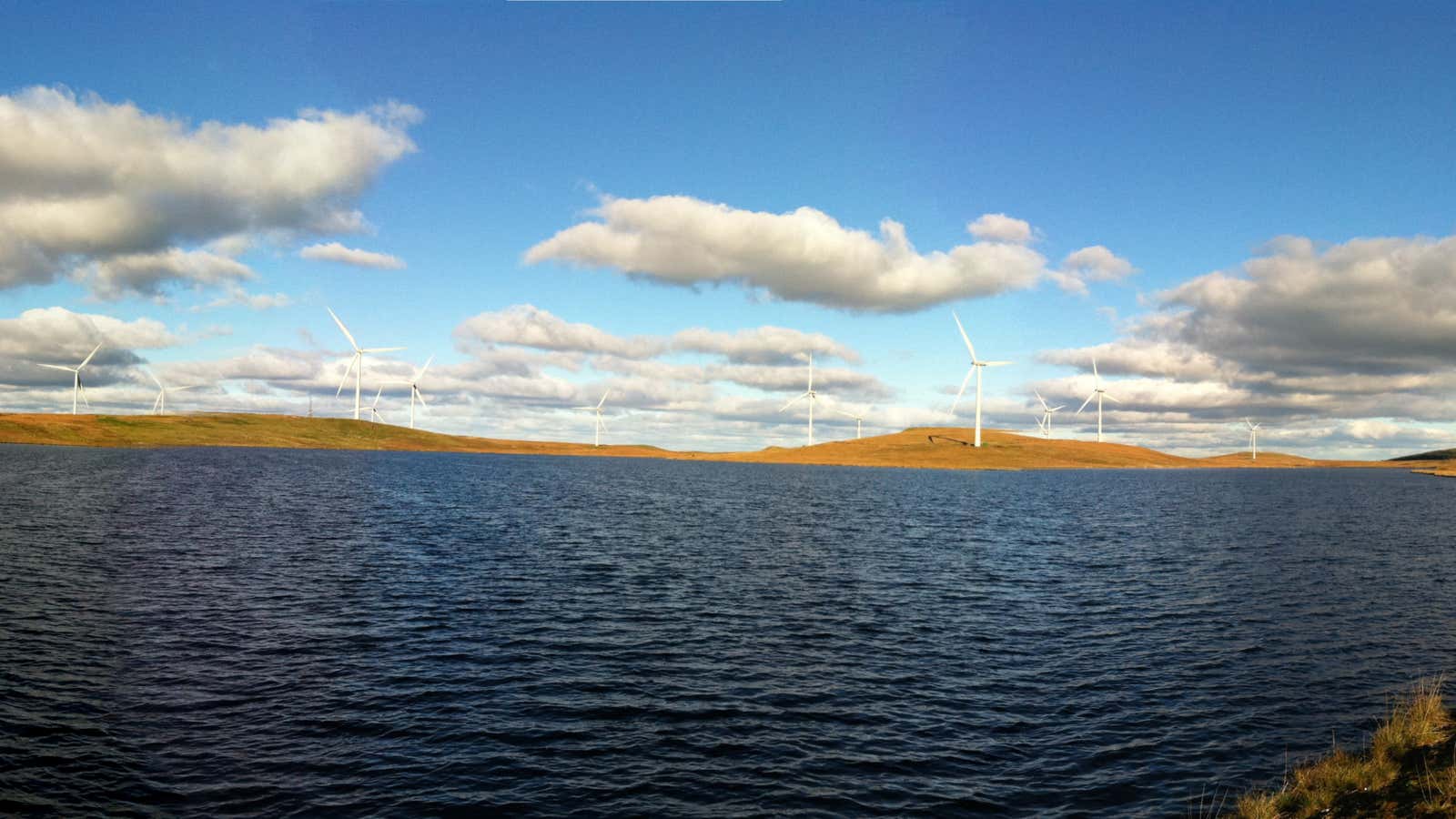Like many multinationals, Spain’s Iberdrola, an electrical utility, has been forced by the euro crisis to re-examine its priorities. Having grown five-fold over the last decade, it’s now halting that geographical expansion and refocusing. Iberdrola’s CEO, José Ignacio Sánchez Galán, told Quartz today that the firm is on track to get rid of most of its operations outside the United States, the United Kingdom, Brazil, Mexico, and Spain. Overall, it wants to raise an estimated €2 billion ($2.6 billion).
But while analysts have watched large European companies sell off unwanted assets to pay down debt lately, for fear that future funding could prove too expensive, Galán argues that Iberdrola is no such company.
“We’re doing [asset] sales to concentrate our business in 5 strategic countries, which is Britain, Spain, US, Mexico and Brazil. And whatever is not in those countries is not strategic for us so we are leaving from those ones. Not because we need this money, it’s because we have lack of capabilities of monitoring a small business in remote countries,” said Galán, who was speaking at a conference on investing in Spain (titled, with characteristic optimism, “Spain, a Land of Opportunities”). He added that 42% of Iberdrola’s profit comes from the US and Britain, “almost 20-30% in Mexico and Brazil, and 30% in Spain. So that is a very good way to concentrate our investment in the next few years.”
The latest example is in Chile, where the company is in talks to sell a hydropower plant. “A hydropower plant in Chile! What can we do in Chile? It’s too far away.” But to date, Iberdrola has focused on selling assets in Europe—telecoms, gas transmission and distribution centers—and windfarms in France and Poland.
Getting out of most of Europe has also required investing in its new target areas, says Galán. The company has been able to find funding more cheaply than the Spanish government at times, because investors see it at a lesser risk of default than even the Spanish government. Yesterday, 5-year credit default swaps (CDS)—essentially, insurance against the default of an entity in the next five years—for Iberdrola traded at 202 basis points, whereas CDS against 5-year Spanish bonds was 267 bps. (The more expensive the insurance, the higher the likelihood of default.) Iberdrola has also tried where possible to issue debt in the countries where its assets are, moving the pressure away from Spain, where funding costs have been high.
Still, while Iberdrola may already be placed to put more of its business overseas, other European companies may not be so lucky. We’ve previously written about how Banco Santander, Telefónica,and other massive Spanish companies have risked destroying their future growth in Latin America to preserve their core operations in Europe.
“What has happened is that [Spanish] companies have taken their suitcases around the world,” said economist Ángel Ubide, another speaker at the conference. What remains to be seen is what happens to the companies that remain tethered to the continent.




